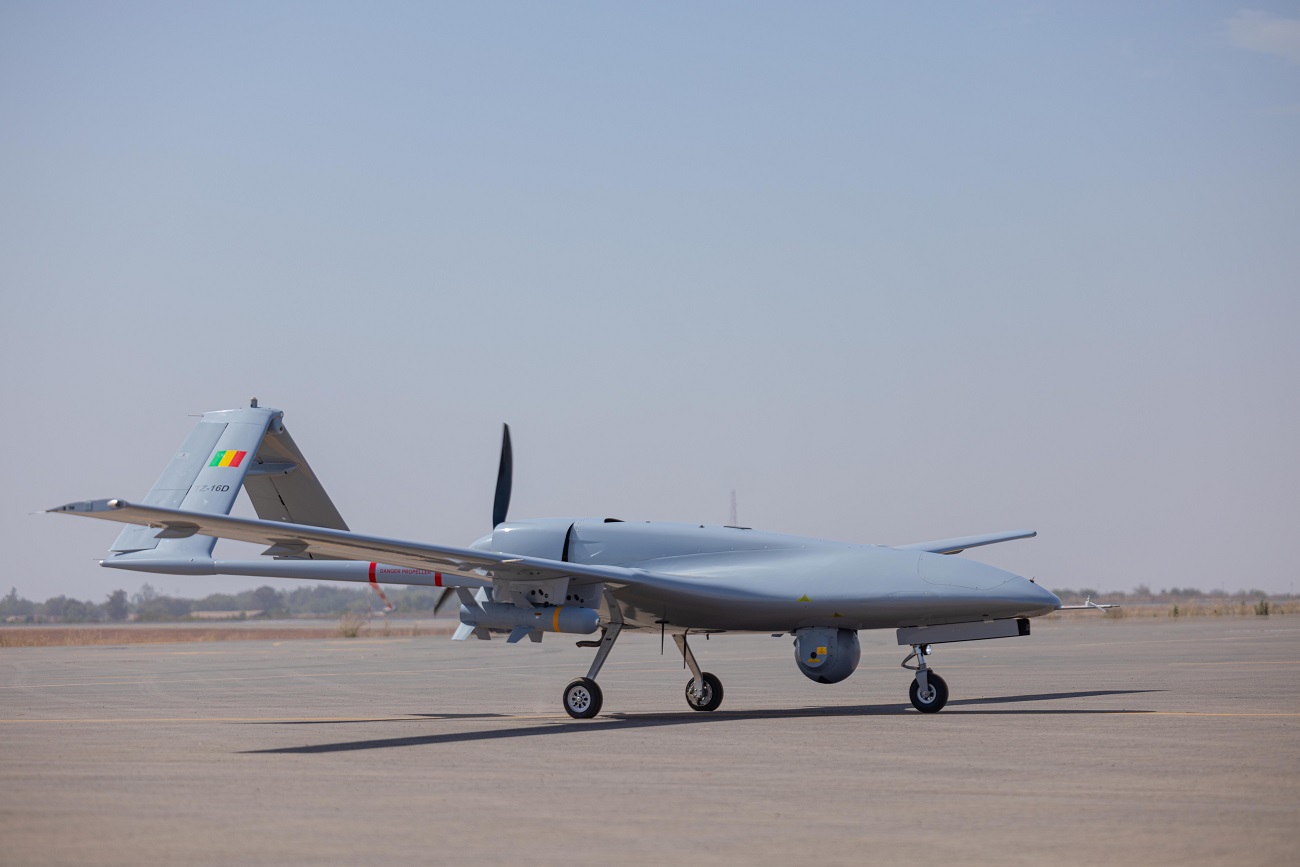Mali recently welcomed a new batch of Bayraktar TB2 unmanned combat aerial vehicles from Turkey. The arrival of these renowned Turkish unmanned aerial vehicles (UAVs) marks a significant step for the West African nation in bolstering its defense capabilities. The ceremony held on January 4th showcased the delivery of five TB2s, some armed with MAM-L laser-guided bombs, at the Modibo Keita International Airport in Bamako. The Malian Armed Forces (FAMa) revealed one of the drones with the serial TZ-17D, signifying an increase in the number of delivered TB2s to at least 17, from previous serials running from TZ-01D to TZ-06D. These drones have gained prominence in Mali, often featured on ORTM television carrying out airstrikes against alleged terrorist targets, although concerns about civilian casualties have been raised.
Chief of Staff of the Air Force Brigadier General Alou Boï Diarra hailed the sophistication of these systems, emphasizing national pride in possessing such advanced technology. He also underlined the indispensable role of Malian soldiers on the ground, cautioning against overshadowing their efforts with the focus solely on the UAVs. The delivery ceremony, attended by interim leader Col. Assimi Goita, highlighted the strategic importance placed on reinforcing Mali’s defense capabilities. Videos circulated on social media further depicted the presence of six TB2s at the airport, emphasizing the significance of this recent shipment, following a similar delivery in March of the previous year. Recent videos circulating on social media platforms purportedly showed Mali’s military utilizing these drones in operations against armed terrorist groups.
The Bayraktar TB2 is a medium-altitude long-endurance (MALE) unmanned combat aerial vehicle (UCAV) capable of remotely controlled or autonomous flight operations. It is manufactured by the Turkish company Baykar Makina Sanayi ve Ticaret A.S., primarily for the Turkish Armed Forces. The aircraft are monitored and controlled by an aircrew in a ground control station, including weapons employment. The largest operator of TB2 drones is the Turkish military, but an export model has been sold to the militaries of a number of other countries. Turkey has used the drone extensively in strikes on Kurdistan Workers’ Party (PKK) and People’s Protection Units (YPG) targets in Iraq and Syria. Bayraktar drones were later deployed by a number of other nations around the world in various wars, such as by Azerbaijan in the Second Nagorno-Karabakh War, by the Armed Forces of Ukraine during the Russian invasion of Ukraine, as well as by the Ethiopian National Defense Force during the Tigray War.
The Bayraktar TB2 platform has a blended wing body design with an inverted V-tail structure. Thrust is generated by a variable pitch two-blade propeller in pusher configuration. The propeller is mounted between the tail booms and driven by an internal combustion engine located in the body. The monocoque platform is modular with detachable main items such as wing, tail boom, and V-tails. Fuselage pieces are made mostly of carbon fiber composite with machined aluminum parts at joints. Fuel is stored within bladder tanks and fuel consumption is balanced with solenoid valves. The ground control station (GCS) is based on a NATO spec shelter unit which is equipped with cross redundant command and control systems. The mobile unit supports three personnel: pilot, payload operator and mission commander. The GCS is equipped with redundant air conditioners and nuclear, biological and chemical filtration (NBC) filtering unit.
#Defense Le Président de la Transition a présidé ce jeudi 4 janvier 2024, au Pavillon présidentiel de l’Aéroport international Président Modibo KÉÏTA de Bamako-Sénou, la cérémonie de remise des drones de type TB2 à l’Armée de l’Air. pic.twitter.com/R3j8Tbg5dp
— Presidence Mali (@PresidenceMali) January 4, 2024













